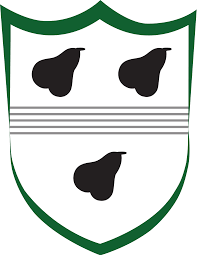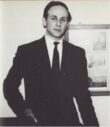Worcestershire in Print
Martin Chandler |
The history of Worcestershire, who joined the Championship as late as 1899, has been well covered by writers, and in particular thanks to Andrew Thomas the history is all but up to date. The early years of the club, before its First Class days, are covered in Bernard Bridgwater’s Early History of the Three Black Pears.
The Reverend WR Chignell produced two bulky volumes of Worcestershire history. A History of Worcestershire County Cricket Club 1844-1950 was the first, and Worcestershire Cricket 1950-1968 was the follow up. Another reverend gentleman, Mike Vockins, then produced a slim volume in 1980 entitled A Pictorial History Of Worcestershire Cricket before the Worcestershire volume in the Helm series appeared in 1989, written by David Lemmon.
More recently, to mark the 150th anniversary of the formation of the County Club in 2015, Andrew Thomas produced Pears 150, a real heavyweight of a book, and a distinctly unconventional one, and only last year he produced a supplement, Pears 155, which carried the story through to the end of the most recent ‘normal’ summer of cricket, 2019.
Remarkably few Worcestershire players have been the subject of biographies, and the first seven all had the same surname. For a variety of reasons Reginald Erskine ‘Tip’ Foster is the best known of the famous brotherhood and he is, as are his six brothers, fully considered in Anthony Collis’s privately published 2018 book, Fostershire.
The Fosters apart the only Worcestershire cricketer from before the Great War who has been the subject of a book is the Australian all-rounder Jack Cuffe. Only last year Pat Rodgers’ The Perplexing and Tragic Life of Jack Cuffe dug deep to uncover a fascinating story.
With just the Fosters and Cuffe from prior to the Great War the next era in the county game, between the wars, saw only one Worcestershire player go into print. It was 1937 when Fred Root’s autobiography A Cricket Pro’s Lot appeared, a book of some importance and one that remains of interest today.
And at this point, due to the limited number of eligible volumes, I will mention a monograph on the subject of Australian Roger Kimpton. An amateur who played two thirds of his sixty First Class matches for Oxford University and just fourteen for Worcestershire. He is nonetheless the subject of an interesting booklet that was privately published by Philip Molyneux in 1998, RCM Kimpton: A Gifted Amateur Cricketer.
Don Kenyon joined the county’s staff in time for the 1946 season, and did not retire until the end of the 1967 summer. All told Kenyon appeared in 643 First Class matches, eight of them Tests although he was never able to reproduce his county form for England. Tim Jones wrote Don Kenyon: His Own Man, a biography that appeared in 2015.
In 1950 right arm medium pace bowler George Chesterton first appeared for Worcestershire. A career schoolmaster at Malvern College for a few years Chesterton appeared a few times each summer as an amateur with some success albeit not to the degree which would ordinarily justify the publication of a biography sixty years later. Chesterton’s long time teaching colleague and former Hampshire player Andy Murtagh made him the subject of his first biography in 2012, A Remarkable Man.
Wicketkeeper Roy Booth joined Worcestershire in 1956 after finding his opportunities at his native Yorkshire limited by the emergence of Jimmy Binks. He stayed until 1970 and in 2014 Richard Walsh privately published an interesting monograph, Roy Booth.
One of the most controversial figures in the history of the game was a Worcestershire player through the 1960s, albeit none of the issues were of his own making. Basil D’Oliveira was to write three autobiographies, in D’Oliveira: An Autobiography (1968), The D’Oliveira Affair (1969) and Time To Declare (1980) before, in 2004, an excellent biography, Basil D’Oliveira, appeared from Peter Oborne.
1960 brought with it a big new signing for Worcestershire, Tom Graveney. The move was not welcomed by Graveney’s first county Worcestershire and caused something of a stir, but Graveney’s arrival certainly coincided with the county’s rise to the top. Two of Graveney’s autobiographies appeared whilst he was with Worcester, On Cricket in 1965 and Cricket Over Forty in 1980. In 1992 Christopher Sandford’s Tom Graveney: The Biography appeared. Later on in 2005 another book about Graveney appeared, Tom Graveney At Lord’s by Stephen Fay dealt primarily with his tenure as MCC President.
New Zealander Glenn Turner plied his trade at Worcester between 1967 and 1982. Turner is a man who has written a number of books, and all of My Way, (1975), Glenn Turner’s Century of Centuries (1983), Opening Up (1987) and Lifting The Covers (1998) have autobiographical elements.
In 1975 footballer Phil Neale joined Worcestershire as a batsman and was a consistent performer for the next seventeen seasons, ten of them as captain. His autobiography, A Double Life, was published in 1990. One of Neale’s men during his years in charge was Graeme Hick. Never can a cricketer have been burdened with quite as much expectation as Hick, and although he enjoyed a good career he never fulfilled his promise. To date only his My Early Life, published when he was just 25, has found its way into print.
After a couple of disappointing years with neighbours Warwickshire Moeen Ali joined Worcestershire in 2007 and went on to become an England all-rounder. His autobiography, Moeen, appeared in 2018. A rather less celebrated all-rounder of recent years is Jack Shantry, who played for Worcestershire between 2009 and 2017. Shantry’s Match by Paul Edwards is an extended monograph that was published in 2019.
The Tempus 100 Greats book on the subject of Worcestershire was written by Les Hatton, who also put together a book in that publisher’s Images of Sport series. The two books appeared in 2001 and 1999 respectively. Prior to that a Who’s Who of Worcestershire Cricket had appeared in 1990, the work of Robert Brooke and David Goodyear. As to accounts of seasons there are two for mention. In 1988 Worcestershire won the Championship and the Refuge Assurance League. Double Triumph by Frank Watson appeared the following year, and when the county retained the Championship in 1989 Patrick Murphy assisted Graeme Hick and Graham Dilley to write Hick ’n Dilley Circus.
And my two choices for Worcestershire? The first is easy and for many years I was confident it would appear, but as time goes on without a full autobiography from Graeme Hick I begin to think that perhaps it won’t. The second choice is trickier, but in the end I’ll plump for a book about the men who made Worcestershire’s back to back Championship wins in 1964 and 1965 possible.






Leave a comment